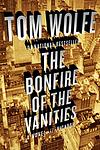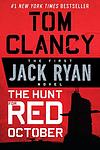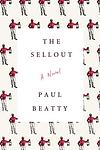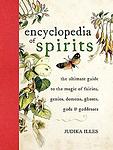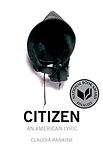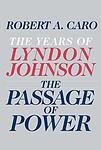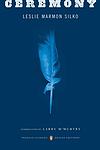The Greatest American "Fiction, Political" Books Since 1980
Click to learn how this list is calculated.
This list represents a comprehensive and trusted collection of the greatest books. Developed through a specialized algorithm, it brings together 291 'best of' book lists to form a definitive guide to the world's most acclaimed books. For those interested in how these books are chosen, additional details can be found on the rankings page.
Genres
The "Political" category of books encompasses works that explore the theory, practice, and history of government and politics. These books may cover topics such as political ideologies, political systems, political institutions, political movements, and political leaders. They may also examine the relationship between politics and other areas of society, such as economics, culture, and international relations. Political books can be both informative and thought-provoking, offering readers insights into the complexities of the political world and the challenges of governing in a democratic society.
Countries
Date Range
Reading Statistics
Click the button below to see how many of these books you've read!
Download
If you're interested in downloading this list as a CSV file for use in a spreadsheet application, you can easily do so by clicking the button below. Please note that to ensure a manageable file size and faster download, the CSV will include details for only the first 500 books.
Download-
1. American Pastoral by Philip Roth
This novel tells the story of Seymour "Swede" Levov, a successful Jewish-American businessman and former high school athlete from Newark, New Jersey. Levov's happy and conventional upper middle class life is ruined by the domestic social and political turmoil of the 1960s during the presidency of Lyndon B. Johnson, which in the novel is seen through the eyes of the narrator, Nathan Zuckerman, a budding writer who idolizes the Levovs. The novel portrays the impact of this turmoil on Levov and his family, particularly his rebellious daughter who becomes involved in revolutionary political activities.
-
2. Bonfire of the Vanities by Tom Wolfe
This novel follows the life of a successful Wall Street bond trader who, after a wrong turn in the Bronx, finds his life spiraling out of control. After a hit-and-run accident in a predominantly black neighborhood, he becomes the target of a political witch hunt, exacerbating racial tensions in the city. As the protagonist's world unravels, the story provides a satirical commentary on 1980s New York City, exploring themes of racism, classism, politics, and greed.
-
3. Underworld by Don DeLillo
"Underworld" is a sweeping narrative that spans from the 1950s to the end of the 20th century, exploring the interconnectedness of events and the impact of the Cold War on American society. The story revolves around a diverse group of characters, including a waste management executive, a graffiti artist, a nun, and a baseball collector, among others. These characters' lives intertwine in unexpected ways, illustrating the complex web of relationships and influences that shape our world. The novel is renowned for its vivid portrayal of historical events and its profound examination of themes such as memory, technology, and waste.
-
4. The Hunt for Red October by Tom Clancy
This novel details the story of a high-ranking Russian submarine captain who aims to defect to the United States without sparking a war between the two nations. The American government, upon receiving information about the captain's intentions, sends its best analyst to aid in the successful defection of the captain and his crew. The novel is a thrilling tale of espionage, filled with suspense and detailed technical descriptions of military technology and procedure.
-
5. The Plot Against America by Philip Roth
This novel presents an alternate history where aviator-hero and rabid isolationist Charles Lindbergh is elected President in 1940, leading the United States towards fascism and anti-Semitism. The story is narrated through the perspective of a working-class Jewish family in Newark, New Jersey, experiencing the political shift and its terrifying consequences. The narrative explores themes of prejudice, fear, patriotism, and family bonds under the shadow of a fascist regime.
-
6. The Sellout by Paul Beatty
This satirical novel follows the story of an African-American man living in a small, agrarian town on the outskirts of Los Angeles. After his father's death, he attempts to reinstate slavery and segregation in his town as a means of creating a sense of identity for himself and his community. The novel explores themes of racial identity and equality in America, challenging societal norms and expectations through its provocative narrative.
-
7. The Sympathizer by Viet Thanh Nguyen
"The Sympathizer" is a gripping spy novel set during the Vietnam War. The protagonist is a half-French, half-Vietnamese army captain who is a communist double agent. After the Fall of Saigon, he moves to America with other South Vietnamese refugees and struggles to reconcile his dual loyalties as he continues to spy on his fellow countrymen in exile. The novel explores themes of identity, war, and politics, while providing a unique perspective on the Vietnam War and its aftermath.
-
8. Libra by Don DeLillo
This novel is a fictionalized account of the life of Lee Harvey Oswald, the assassin of President John F. Kennedy. It explores Oswald's troubled childhood, his time in the Soviet Union, his return to America, and his involvement in a conspiracy to assassinate the president. The story is told from multiple perspectives, including that of Oswald himself, his mother, and various fictional characters, creating a complex and nuanced portrait of a man who has become a symbol of one of the most traumatic events in American history.
-
9. A Flag For Sunrise by Robert Stone
Set in a fictional Central American country on the brink of revolution, the narrative weaves together the lives of disparate characters: an anthropologist seeking meaning, a disillusioned missionary, a coast guard officer, and a young American woman entangled with a mysterious, possibly treasonous, poet. Their paths intersect against a backdrop of political turmoil, personal betrayal, and moral ambiguity. As the tension escalates, each character is forced to confront the chaos within the country and within themselves, leading to a climax that questions the price of integrity and the cost of survival in a world fraught with corruption and violence.
-
10. Mao II by Don DeLillo
"Mao II" is a novel that explores the life of a reclusive novelist who hasn't been seen in public for many years. The protagonist is drawn out of his seclusion when he becomes involved in an international crisis involving a hostage situation in Beirut. The book delves into themes of terrorism, mass culture, and the power of the written word, while examining the relationship between the individual artist and the collective society.
-
11. Operation Shylock by Philip Roth
In this intriguing novel, the protagonist, a famous writer, travels to Israel to cover the trial of a former Nazi war criminal. While there, he encounters a man who is his doppelgänger and who has been using his fame to promote a controversial political agenda, including the idea that Jews should abandon Israel and return to Europe. The narrative explores themes of identity, Jewish history, and the complexities of the Israeli-Palestinian conflict, all while blurring the line between fiction and reality.
-
12. Billy Lynn's Long Halftime Walk: A Novel by Ben Fountain
The novel follows Billy Lynn, a 19-year-old soldier, who, along with his fellow soldiers in Bravo Squad, becomes a hero after a harrowing Iraq battle and is brought home temporarily for a victory tour. During the tour, they're honored at a Dallas Cowboys game, which exposes the commercialization and shallow appreciation of their sacrifices. Amidst the celebration, Billy grapples with his understanding of heroism, patriotism, family, and the stark contrast between the realities of war and America's perceptions.
-
13. Angels & Demons by Dan Brown
In this fast-paced thriller, a renowned symbologist is called to the Swiss research facility CERN to investigate a mysterious symbol seared into the chest of a murdered physicist. His investigation leads him to the Vatican City, where he uncovers the resurgence of an ancient secret brotherhood known as the Illuminati. As a conclave is underway to elect a new Pope, the symbologist and a gifted Italian scientist race against time to prevent a powerful time bomb from destroying the Vatican. They embark on a frantic hunt through sealed crypts, dangerous catacombs, and deserted cathedrals, following a 400-year-old trail of ancient symbols that snake across Rome to the long-forgotten Illuminati lair.
-
14. Mortals by Norman Rush
"Mortals" is a complex narrative about a Milton scholar and CIA operative named Ray Finch stationed in Botswana. The story explores his personal struggles with his marriage, his brother's death, and his professional life. The narrative also delves into his philosophical and psychological musings, providing a deep exploration of his character. The book presents a rich tapestry of African politics, CIA covert operations, and the human condition, all set against the backdrop of Botswana.
-
15. Citizen: An American Lyric by Claudia Rankine
"Citizen: An American Lyric" is a compelling and thought-provoking exploration of racial prejudice in contemporary America. The book, written in a blend of poetry, prose, and visual images, delves into the everyday experiences and microaggressions that people of color face. It also addresses larger events from the news that have impacted the Black community. The book is a powerful commentary on race, identity, and belonging, challenging readers to confront their own biases and perceptions.
-
16. Democracy by Joan Didion
This book offers a critical and insightful view of American politics and society through the lens of a tumultuous love story set amidst the backdrop of the Vietnam War. The narrative follows a wealthy and influential family, their political maneuverings, and their personal struggles. The book explores themes such as the complexity of human relationships, the nature of power and democracy, and the impact of war on individuals and society, all while providing a biting critique of American political life and culture.
-
17. Tree of Smoke by Denis Johnson
"Tree of Smoke" is a war novel that explores the chaos, violence, and moral ambiguity of the Vietnam War. The story follows a diverse cast of characters, including a CIA operative, a young soldier, and a pair of missionaries, all of whom are trying to navigate the uncertainties and horrors of the war. The novel delves into themes of faith, fate, and the human capacity for both good and evil, offering a gritty and complex portrait of a turbulent period in history.
-
18. The Emperor Of Ocean Park by Stephen L. Carter
"The Emperor of Ocean Park" is a gripping novel that combines elements of mystery, legal drama, and family saga. Set in the affluent world of African-American elites in New England, the story follows Talcott Garland, a law professor and former Supreme Court nominee, as he investigates the mysterious death of his father, a prominent conservative judge. As Talcott delves deeper into his father's past, he uncovers a web of secrets, political intrigue, and corruption that threatens to unravel his own life and reputation. With its intricate plot and richly drawn characters, the book explores themes of power, loyalty, and the complexities of race and identity in America.
-
19. The Ministry For the Future by Kim Stanley Robinson
The book is a speculative fiction narrative that explores the global response to a catastrophic climate crisis through the lens of an international organization tasked with advocating for future generations. Set in the near future, the story weaves together a tapestry of perspectives, from bureaucrats and activists to ordinary citizens, as they confront ecological disasters, economic upheaval, and social transformation. The organization at the heart of the novel employs a mix of diplomacy, policy, and direct action to mitigate climate change, showcasing the complexities and moral dilemmas associated with stewarding the Earth for both present and future inhabitants. The narrative grapples with themes of responsibility, sustainability, and the interconnectedness of global communities in the face of unprecedented environmental challenges.
-
20. The Passage Of Power: The Years Of Lyndon Johnson by Robert Caro
"The Passage of Power: The Years of Lyndon Johnson" by Robert Caro is the fourth volume in his acclaimed biography of the 36th President of the United States. This book covers the years from 1958 to 1964, including Johnson's ascent to the presidency following the assassination of John F. Kennedy. Caro explores Johnson's struggles to pass civil rights legislation, his relationship with Kennedy's family, and his efforts to establish his own presidential legacy. The book also delves into Johnson's personal life, including his marriage to Lady Bird Johnson and his health issues. Overall, "The Passage of Power" provides a comprehensive and insightful look into one of the most complex and consequential figures in American political history.
-
21. Dark Money: The Hidden History Of The Billionaires Behind The Rise Of The Radical Righ by Jane Mayer
"Dark Money" by Jane Mayer is an investigative book that delves into the secretive world of political funding by wealthy individuals and corporations. Mayer exposes the hidden history of the billionaires behind the rise of the radical right, including the Koch brothers and their network of donors. She reveals how these donors have used their enormous wealth to shape American politics and policy, pushing their own interests and agendas while undermining democracy. Mayer's book is a sobering reminder of the dangers of unchecked political influence by the ultra-wealthy.
-
22. The Almanac of the Dead by Leslie Marmon Silko
"The Almanac of the Dead" is a complex narrative that explores the histories and struggles of indigenous peoples in the Americas, particularly in the Southwestern United States and Central America. The story is centered around a 500-year-old manuscript known as "the almanac," which prophesizes a massive, revolutionary upheaval led by the indigenous people against the oppressive forces of capitalism and colonialism. The novel delves into themes of resistance, survival, and the power of storytelling, weaving together a multitude of interconnected narratives and characters.
-
23. The Assassins’ Gate: America In Iraq by George Packer
"The Assassins’ Gate: America In Iraq" by George Packer is a detailed account of the United States' involvement in Iraq following the 9/11 attacks. Packer provides an in-depth analysis of the political decisions, military strategies, and cultural misunderstandings that led to the disastrous and ongoing conflict. He also explores the personal stories of soldiers, diplomats, and Iraqis affected by the war. The book offers a critical examination of American foreign policy and its consequences, making it a thought-provoking read for anyone interested in the history of the Iraq War.
-
24. The Nine: Inside The Secret World Of The Supreme by Jeffrey Toobin
"The Nine" by Jeffrey Toobin provides an in-depth look at the inner workings of the Supreme Court, focusing on the years between 2005 and 2007. Toobin explores the personalities, ideologies, and decisions of the nine justices who serve on America's highest court, including the contentious nominations of John Roberts and Samuel Alito. He also delves into landmark cases such as Bush v. Gore and the legalization of same-sex marriage. Through interviews with justices and their clerks, as well as extensive research, Toobin offers a fascinating glimpse into the secretive world of the Supreme Court.
-
25. Redeployment by Phil Klay
"Redeployment" is a collection of short stories that gives an intimate and profound look into the lives of soldiers in the Iraq War and their experiences upon returning home. The stories explore various themes such as the brutal realities of war, the struggle to adapt to civilian life, the moral complexities faced by soldiers, and the psychological impact of warfare. The book provides a multifaceted portrayal of the human cost of war, offering a nuanced and empathetic depiction of the men and women who serve in the military.
Reading Statistics
Click the button below to see how many of these books you've read!
Download
If you're interested in downloading this list as a CSV file for use in a spreadsheet application, you can easily do so by clicking the button below. Please note that to ensure a manageable file size and faster download, the CSV will include details for only the first 500 books.
Download
